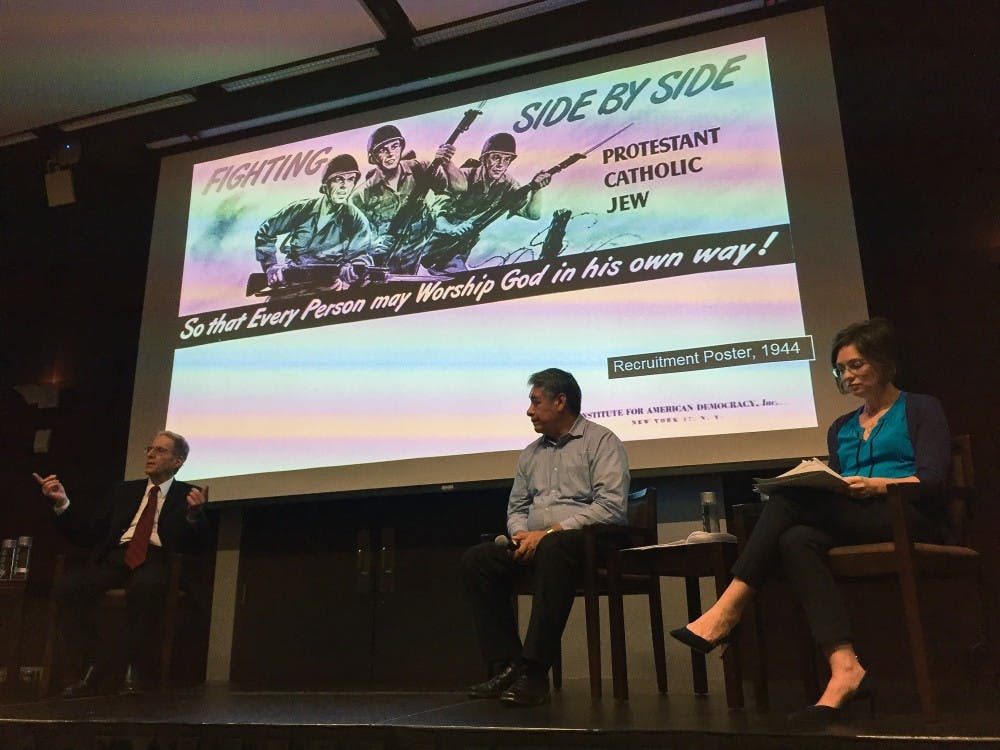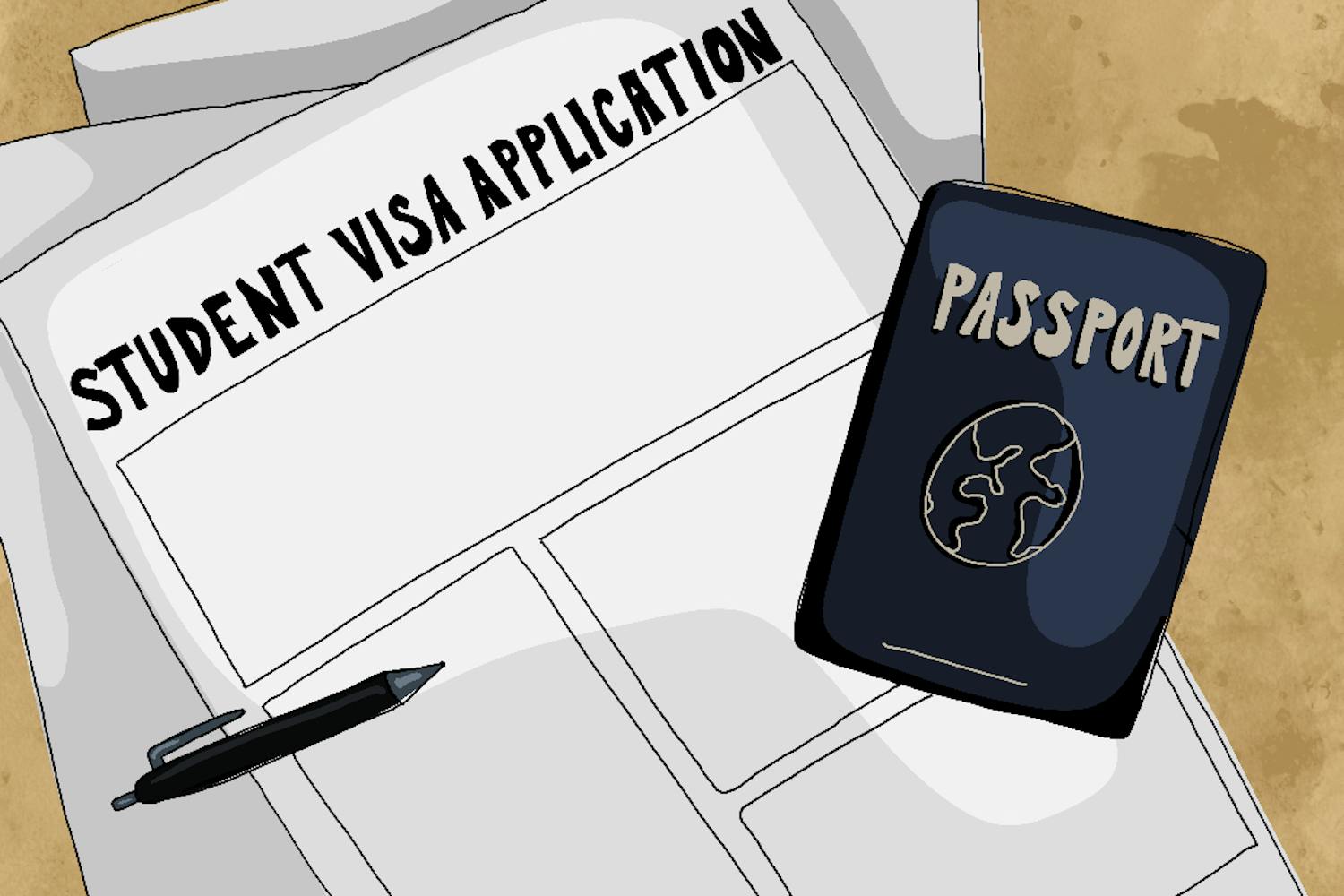ASU hosted a presentation by the United States Holocaust Memorial Museum in Washington D.C. on Monday on what Arizonans knew about Jewish persecution in Europe.
ASU partnered with the Arizona Republic and the Holocaust Memorial Museum to present "Americans and the Nazi Threat: What did Arizonans Know?" which used newspaper clippings from the time to explain Americans' knowledge of the persecution of Jews and the rise of the Third Reich.
For example, in November 1938, the Arizona Republic ran the headline: "Nazis to Destroy Jews".
Discussion focused on the lessons Hitler and the Nazis took from the U.S.'s treatment of Native Americans, treatment of Jews in Arizona and sentiments of the American people in response to the German-Jewish refugee crisis.
Matthew Delmont, director of the School of Historical, Philosophical and Religious Studies at ASU, connected with the Holocaust Museum on Twitter, inviting them to show their new presentation in ASU's Ventana Ballroom inside the Memorial Union.
Delmont also organized a "research sprint" with the Holocaust Museum in 2016.
"We ended up hosting what we call a research sprint at the library here at ASU about a year and a half ago," Delmont said. "We had about 60 faculty, staff and students come through."
The group of researchers looked through African-American newspapers for their coverage of the Holocaust to find what Americans knew during the era.
Edna Friedberg, a historian from the U.S. Holocaust Memorial Museum who headlined Monday's event, said Americans in the 1930s were more concerned with resuscitating the economy from the Great Depression than about Jewish refugees from Germany.
Friedberg said she hoped the event would teach students that their voice and perspective matter.
"(It) doesn’t matter if you’re 18 years old or 88 years old ... collectively, our voices are large and our actions are great," Friedberg said. "I hope (tonight) will inspire people to stand up when they hear about injustice, or see something that they feel is not consistent with the values that they would like to live among."
Mi-Ai Parrish, president and publisher of the Arizona Republic, acted as the moderator of the discussion. Examples of newspapers and magazines across the U.S., including Cosmopolitan and Vanity Fair, characterized Hitler as a joke at the time.
But the public knew so much as to form a multi-thousand person march in New York City, which denounced the anti-Semitic actions of Hitler and his regime in 1933, Friedberg said.
Michael Rubinoff, a lecturer in the College of Integrative Sciences and Arts, said treatment of Jews as "others" was not a practice in Arizona. Estimates of the Jewish population in Arizona at the time are between three and five thousand people, according to Rubinoff, and most were treated as regular neighbors.
"For students, getting to see the primary sources and getting to see these newspaper headlines, and how American newspapers particularly, covered this history, I think it really brings history to life," Delmont said.
Arizona has a specific connection to the atrocities of World War II. After Pearl Harbor in 1941, President Franklin Delano Roosevelt signed Executive Order 9066 which forced Japanese-Americans into internment camps. Two of these camps were in Arizona, where around 30,000 Japanese-Americans were confined.
"Just because there is physical distance doesn't give us an excuse to remain silent or complacent," Friedberg said.
Reach the reporter at cbudnies@asu.edu or follow @ChaseHBudnies on Twitter.
Like The State Press on Facebook and follow @statepress on Twitter.




